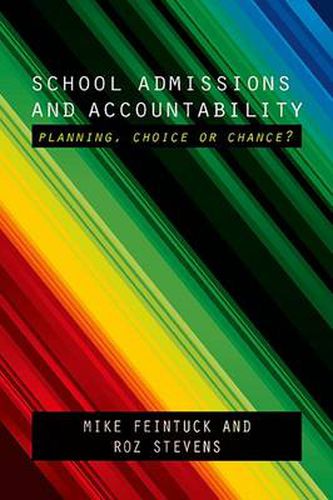Readings Newsletter
Become a Readings Member to make your shopping experience even easier.
Sign in or sign up for free!
You’re not far away from qualifying for FREE standard shipping within Australia
You’ve qualified for FREE standard shipping within Australia
The cart is loading…






The processes for allocating places at secondary schools in England are perennially controversial. Providing integrated coverage of the policy, practice and outcomes from 1944 to 2012, this book addresses the issues relevant to school admissions arising from three different approaches adopted in this period: planning via local authorities, quasi-market mechanisms, and random allocation. Each approach is assessed on its own terms, but constitutional and legal analysis is also utilised to reflect on the extent to which each meets expectations and values associated with schooling, especially democratic expectations associated with citizenship.
Repeated failure to identify and pursue specific values for schooling, and hence admissions, can be found to underlie questions regarding the ‘fairness’ of the process, while also limiting the potential utility of judicial responses to legal actions relating to school admissions. The book adopts an interdisciplinary approach which makes it relevant and accessible to a wide readership in education, social policy and socio-legal studies.
$9.00 standard shipping within Australia
FREE standard shipping within Australia for orders over $100.00
Express & International shipping calculated at checkout
The processes for allocating places at secondary schools in England are perennially controversial. Providing integrated coverage of the policy, practice and outcomes from 1944 to 2012, this book addresses the issues relevant to school admissions arising from three different approaches adopted in this period: planning via local authorities, quasi-market mechanisms, and random allocation. Each approach is assessed on its own terms, but constitutional and legal analysis is also utilised to reflect on the extent to which each meets expectations and values associated with schooling, especially democratic expectations associated with citizenship.
Repeated failure to identify and pursue specific values for schooling, and hence admissions, can be found to underlie questions regarding the ‘fairness’ of the process, while also limiting the potential utility of judicial responses to legal actions relating to school admissions. The book adopts an interdisciplinary approach which makes it relevant and accessible to a wide readership in education, social policy and socio-legal studies.